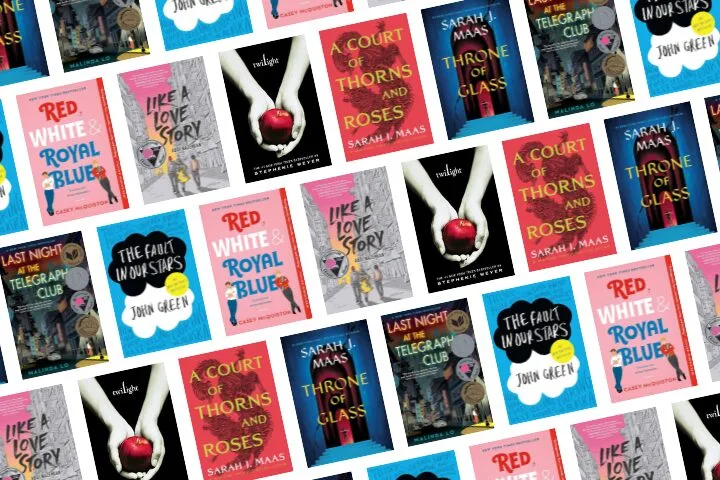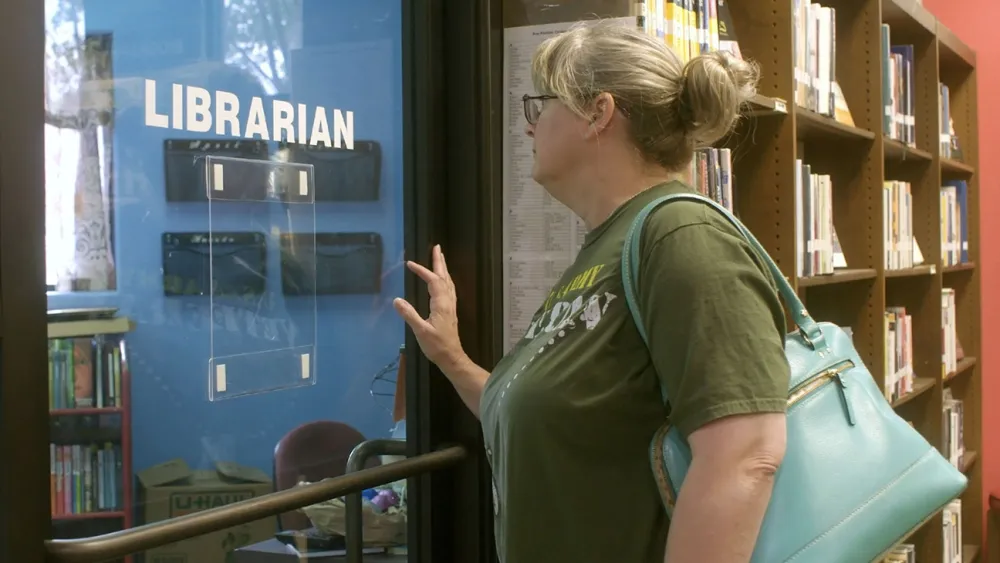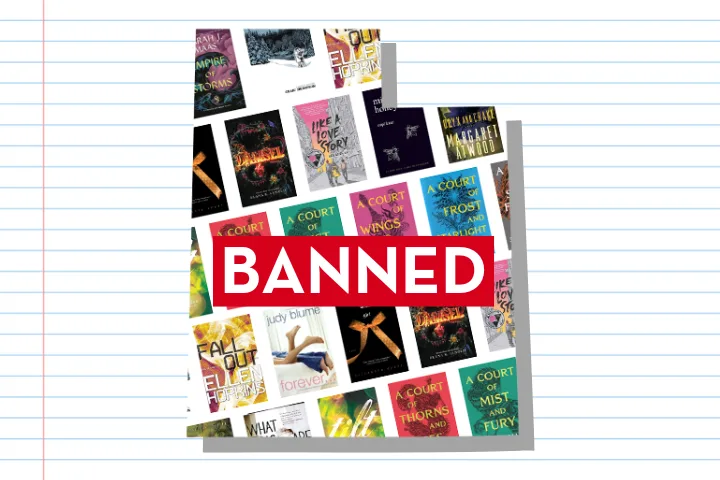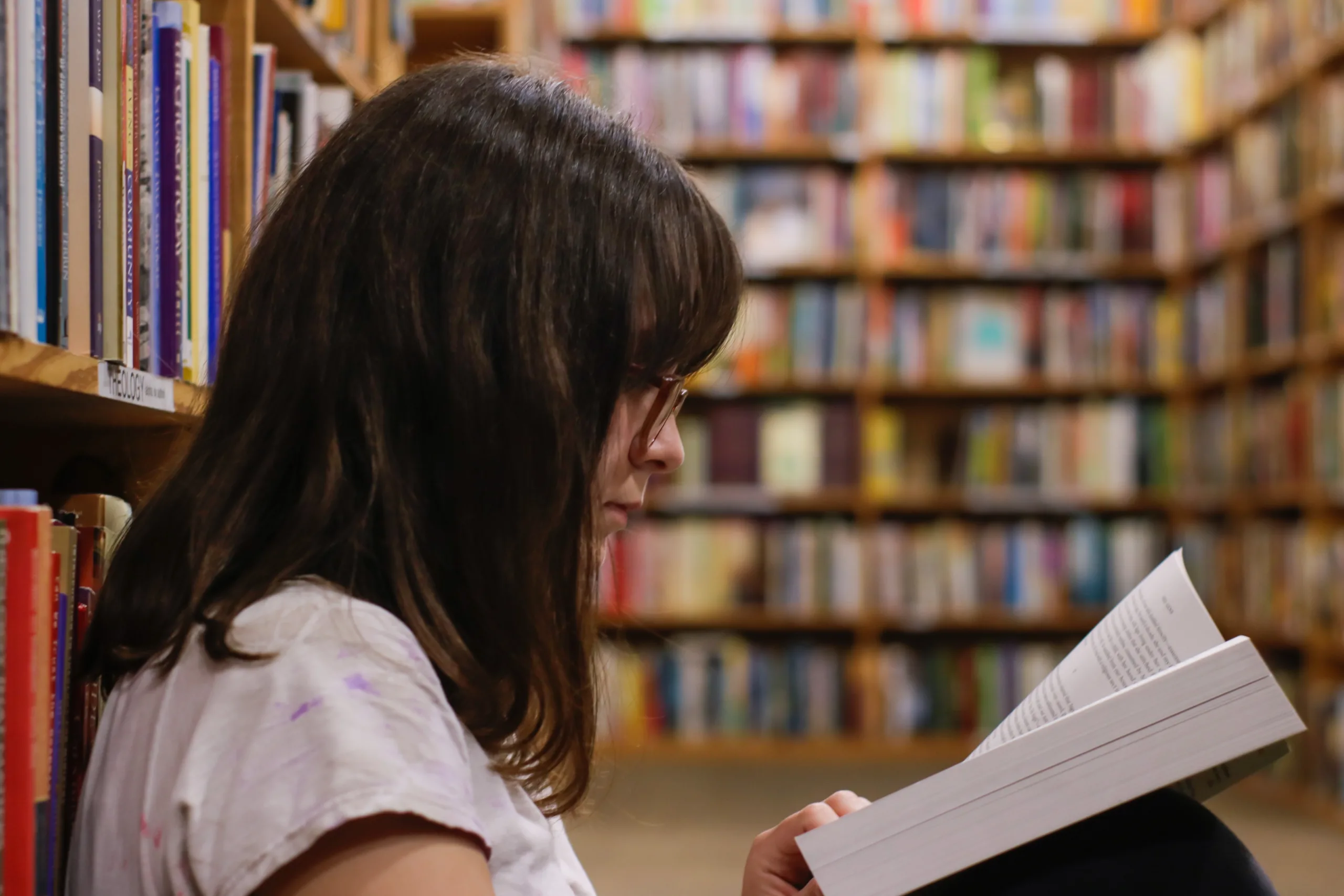
Adib Khorram | Shelf Love
In Adib Khorram’s boy-meets-boy romances, the protagonists are imperfect and perfectly relatable. Drawing from his own heritage as a queer Iranian-American author, Khorram’s protagonists—young, friendly, flirty, and confused—traverse life bridging racial and cultural differences as they find love and companionship.
But not all students in public schools across America have access to read such diverse romances. PEN America’s recent reports found that romance novels are increasingly censored for including sexual content. Popular romance fiction can be a great resource for teenagers to learn about love and desire, and spark productive, and often pivotal, conversations about boundaries and consent. With Shelf Love, an interview series with romance authors, PEN America, in collaboration with Authors Against Book Bans, is celebrating the love for writing and reading about love.
For the fifth installment in the series, we talked to Khorram, an Authors Against Book Bans national leader and the author of Darius The Great Deserves Better, Seven Special Somethings, Kiss & Tell, Bijan Always Wins, and, most recently, I’ll Have What He’s Having.
What was the first romance novel you ever read? What is the last romance novel you read?
I honestly can’t remember the first romance novel I ever read—I think I was twelve or thirteen—but the most recent one is Alexis Daria’s Along Came Amor.
Why do you write romance novels? Who do you write them for?
I’m a selfish writer at heart, so most often when I’m writing a book, I’m writing it for me. I’m writing to answer a question I have about life, or to exorcise some proverbial demons, or to make sense of the world around me. And when I write romance in particular, I’m asking questions about the meaning of love, the different shapes it can take, and how it affects our lives.
Why do you think romance novels matter?
Romance novels matter because human beings are wired for connection—whether it be platonic or romantic or sexual—and literature helps us understand those connections. YA romance in particular is a powerful tool for younger readers to grow their own vocabulary around love, desire, and especially consent.
Why is it important for books to tackle sex and sexual desire?
Many people experience sex or sexual desire over the course of their lives. It’s the job of artists—in this case, writers—to interrogate those experiences. What makes them good? What makes them bad? What makes them healthy or unhealthy? How have the power structures in our society influenced them? How can they be used to fight back against those structures?
Why do you think the romance genre has seen such a resurgence in pop culture?
I’m not entirely convinced it ever went away—has it seen a resurgence or are more people just paying attention? Romance has always been a huge part of the book marker, and a huge part of pop culture. That said, I do think when times are tough, people look to media like books for comfort, to imagine a better world, and what could be more comfortable than two people (or multiple people, or a person and a sentient door) falling in love?
What value does romance bring to literature writ large?
Romance brings passion. Romance helps define the language of desire. Romance pushes the bounds of dialogue, of tension, of setting, of premise. If all romances have the same central theme—people falling in love—how does an author make their own voice and perspective stand out? Every writer needs to understand these things in some way or another.
What has been the most rewarding part of being a romance writer?
Getting to join in the vast, vibrant, and lively romance community of authors and readers has been, hands down, the best part of my journey. I’ve made friends for life, I’ve laughed so hard I cried, I’ve gotten an impromptu jazz concert, I’ve watched a bartender make the world’s worst chocolate martini. The list goes on!
Is there anything else you’d like to add?
Romance writers and readers are mighty, and with the increased censorship of romance books at every level, it’s up to us to use that might to fight back.
Adib Khorram (he/him) is a queer Iranian-American and the award-winning and bestselling author of fiction for all ages, including Darius the Great Is Not Okay, The Breakup Lists, and the USA Today Bestselling adult romance I’ll Have What He’s Having. He is a MacDowell Fellow and member of the national board for Authors Against Book Bans. When he isn’t writing, you can find him sipping a cup of Oolong or playing his Fender Stratocaster. Find him on the web at adibkhorram.com.










